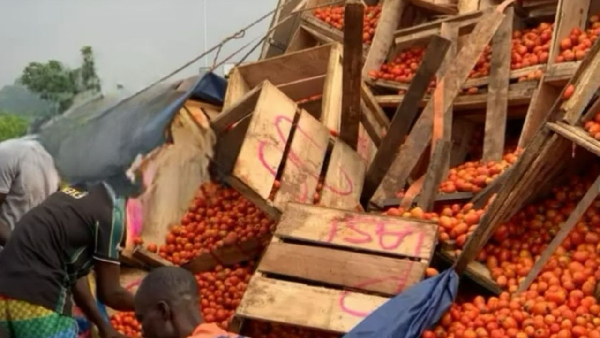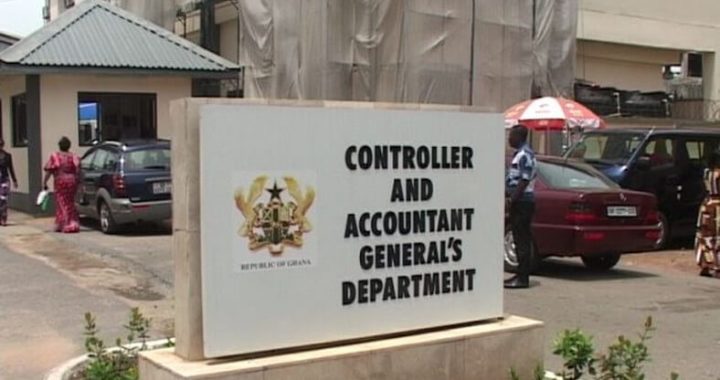IGP Shakes Up Mining Commanders in Crackdown Surge
IGP Shakes Up Mining Commanders

The Ghana Police Service, under the leadership of Inspector-General Christian Tetteh Yohuno, has taken a bold step in its fight against illegal mining, commonly known as galamsey, by overhauling the leadership of police units stationed in regions plagued by these activities. This reshuffling of commanders—spanning the Eastern South, Western, and Western North Police regions—is the first wave of a larger strategy aimed at revitalizing efforts to combat environmental degradation and protect the nation’s water resources from the destructive impacts of unregulated mining. The move underscores the IGP’s determination to tackle what has become a deeply entrenched issue, one that not only threatens ecosystems but also fuels corruption and organized crime in affected communities. By reassigning divisional and district commanders, the police force aims to inject fresh perspectives and stronger oversight into areas where illegal operations have historically thrived, often with the alleged complicity of local authorities.
This restructuring comes at a critical time, as public frustration over the slow progress in curbing galamsey has reached a boiling point. Communities in mining hotspots have long complained about polluted rivers, destroyed farmlands, and the unchecked presence of heavy machinery in forest reserves. The IGP’s decision signals a shift toward a more aggressive and coordinated approach, with plans to roll out additional command changes in the coming weeks. These adjustments are not merely administrative but tactical, designed to disrupt networks that have allowed illegal miners to operate with impunity. Sources within the police service suggest that the reshuffle targets commanders perceived as ineffective or, worse, compromised by their ties to mining syndicates. The goal is clear: to dismantle the systems enabling environmental exploitation and restore public trust in law enforcement’s ability to safeguard natural resources.
In a parallel development, the police have announced a major breakthrough following a meticulously planned four-day operation in the Samreboi area of the Western Region, a zone notorious for its dense forests and rivers scarred by illegal mining. Conducted between April 17th and 20th, 2025, the intelligence-driven mission led to the arrest of 47 suspects, including 39 Ghanaians and 8 Chinese nationals, four of whom are women. The arrests occurred along the Tano River and within the Aboi, Subri, and Nimiri forests—remote locations where the hum of excavators and the clatter of machinery have replaced the sounds of wildlife. The operation’s success hinged on weeks of surveillance, with undercover officers infiltrating mining sites to gather evidence before moving in to apprehend suspects and confiscate equipment.
The scale of the seizure highlights the industrial nature of these illegal operations. Among the items recovered were 17 excavators, a bulldozer, four motorbikes, two Toyota Hilux trucks, a Rav4 SUV, and eight pumping machines used to drain water from mining pits. Equally alarming was the discovery of firearms, including four pump-action guns, a single-barrel weapon, and 54 live cartridges—a stark reminder of the violence often associated with galamsey networks. These weapons, police speculate, were likely used to intimidate rivals or ward off authorities. The seized machinery, now impounded as evidence, represents millions of dollars in investments, pointing to the lucrative yet destructive economy driving these activities. For context, a single excavator can cost upwards of $300,000, underscoring the financial stakes for those involved.
The inclusion of foreign nationals among the arrested has reignited debates about the role of international actors in Ghana’s galamsey crisis. While the majority of suspects are locals, the presence of Chinese nationals aligns with a broader pattern observed over the past decade, where foreign investors, often operating through informal channels, supply funding and equipment in exchange for a share of profits. This dynamic has complicated enforcement efforts, as cross-border collaborations and language barriers slow down investigations. Nonetheless, the police have emphasized that nationality will not shield perpetrators from prosecution. All suspects remain in custody as authorities prepare charges, with plans to pursue stringent penalties under Ghana’s minerals and mining laws, which prescribe fines and imprisonment for illegal extraction.
Environmental advocates have lauded the arrests as a step in the right direction but caution against premature celebration. “This isn’t just about catching a few individuals,” says Kwame Asare, a coordinator with the Ghana Environmental Protection Coalition. “It’s about dismantling an entire ecosystem of corruption—from the laborers digging pits to the financiers hiding in cities. Every seized excavator matters, but we need systemic reforms to prevent replacements from arriving tomorrow.” His sentiment echoes a widespread skepticism rooted in years of sporadic crackdowns followed by resurgent mining activity. For instance, past operations have seen equipment confiscated only to reappear months later under new ownership, often through opaque legal loopholes.
ALSO READ: Sports world honors Pope Francis, a football enthusiast, with Italy and Argentina delaying matches
The IGP has acknowledged these challenges, framing the reshuffle and recent arrests as part of a “multiphase strategy” combining enforcement, community engagement, and technological innovation. Drones and satellite imagery, he notes, are now being deployed to monitor remote areas in real time, reducing reliance on ground patrols that are easily evaded. Additionally, the police are working with traditional leaders and local assemblies to identify and report suspicious activities, fostering a collaborative approach to surveillance. “This fight cannot be won by the police alone,” Yohuno stated in a press briefing. “It requires the eyes and voices of every citizen. When you see something—a truck transporting machinery at odd hours, strangers leasing farmland for unclear purposes—speak up. Protecting our environment is a duty we all share.”
Public reaction to these measures has been mixed. While some communities welcome the renewed vigor, others remain wary, citing past disappointments. In the village of Aboi, near one of the raided forests, resident Ama Mensah expressed cautious optimism: “We’ve seen these operations before. They arrest people, take the machines, and then nothing changes. But this time feels different—maybe because they’re also changing the commanders. Let’s pray it lasts.” Her words reflect a broader yearning for accountability, particularly toward officials accused of turning a blind eye to illegal mining in exchange for bribes.
Critics, however, argue that the focus on law enforcement overlooks deeper socioeconomic drivers. With unemployment high and alternative livelihoods scarce, many young people view galamsey as their only means of survival. “You can’t arrest poverty away,” argues sociologist Dr. Efua Sutherland. “For every person detained, there are dozens more desperate enough to take their place. Sustainable solutions must include job creation and legal, regulated small-scale mining opportunities.”
For more interesting and diverse articles,
Click Here




 Terrorist Attack Ghanaian Tomato Traders in Burkina Faso
Terrorist Attack Ghanaian Tomato Traders in Burkina Faso  New Term 2 End of Term Question: Nursery to Grade 8 Exam Packs (2026)
New Term 2 End of Term Question: Nursery to Grade 8 Exam Packs (2026)  Why MTN Ghana’s Ghs399 Bundle is the Best Data Deal in 2026
Why MTN Ghana’s Ghs399 Bundle is the Best Data Deal in 2026  CAGD Salary Suspension 2026: Deadlines and Actions for Affected Staff
CAGD Salary Suspension 2026: Deadlines and Actions for Affected Staff